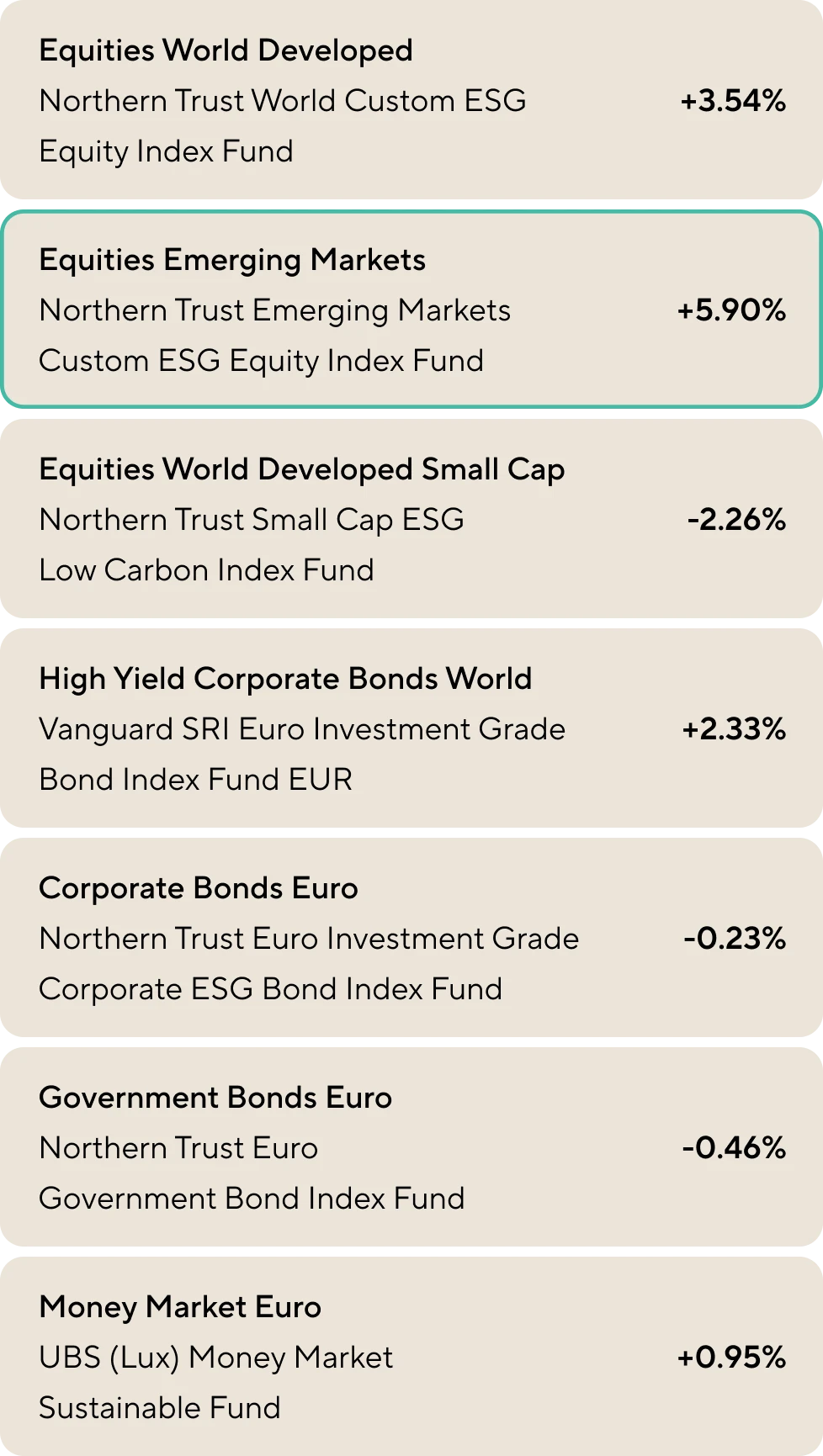Market update: Second quarter 2024
After a strong first quarter, the financial markets showed a mixed picture in the second quarter of 2024. After their good start, shares experienced a turbulent period. Bonds continued to perform poorly, partly due to persistent inflation and high interest rates.
Review of the second quarter of 2024: A turbulent period due to persistently high interest rates.
The second quarter of 2024 has once again demonstrated how volatile the financial markets can be. While the first quarter of 2024 was mainly characterized by optimism and high returns on the stock market, this did not last long. In the second quarter, we saw the sentiment shift to a more negative outlook.
The second quarter of 2024 in Europe was dominated by politics, specifically the outcome of the European elections and the subsequent parliamentary elections in France. This resulted in a decline in stock prices. However, the prices of American stocks were not affected by this. They rose in the past quarter, mainly due to continued enthusiasm around Artificial Intelligence (AI). Stocks in emerging markets generally had a strong quarter.
Due to persistently high inflation, it was expected that central banks would implement fewer interest rate cuts. The Federal Reserve, the central bank of the US, chose not to adjust the interest rate and announced only one interest rate cut, two fewer than expected in March.

However, the European Central Bank did announce an interest rate cut in June despite persistent inflation figures.
As a result, bonds became less attractive. This is because the interest rate on bonds falls when interest rates fall in general. When interest rates are cut, bonds with the old, higher interest rate become more valuable.
The return on creditworthy bonds from governments and large companies depends heavily on interest rates.
Central banks are keeping interest rates high to reduce inflation, which is causing lower returns on creditworthy bonds. High yield corporate bonds still performed well.
Best fund performance in the second quarter of 2024:
Northern Trust Emerging Markets Custom ESG Equity Index Fund + 5.90%
Changes in the market, what does that mean for my portfolio?
The second quarter once again showed how volatile the market can be. The market reacts to news from outside, including the results of the elections in Europe. As a result, sentiment about the financial market can change quickly. However, predicting exactly when the stock market will fall or rise seems almost impossible. It now appears that the market has started an upward trend again, but this can never be said with certainty.
Therefore, our advice remains the same. Do not adjust your portfolio to short-term changes in the market. The Vive investment model ensures that your portfolio is spread as well as possible across various financial products (bonds, funds, shares, etc.) for your risk level. This way, these types of changes have little effect on your portfolio in the long term.
Don't let the market disrupt your long-term goals.
Continue to follow your goals and only adjust your portfolio if your personal situation changes, not based on market changes or sentiment. Sticking to your investment strategy with a well-diversified investment portfolio remains the key to long-term success. Check in the app how your risk level is set and keep an eye on your investment plan to continue achieving your long-term goals.

maak een afspraak
Klaar voor een moderne oplossing voor pensioen of vermogen? Maak vrijblijvend kennis met Vive en ontdek wat kan - voor jouw organisatie.
Complex pensioen, simpel uitgelegd - weet direct waar je staat
Persoonlijk gesprek voor jouw situatie en die van je werkenemers
In 30 minuten meer duidelijkheid dan uren googlen
Alle ruimte voor vragen aan onze ervaren pensioenexperts









